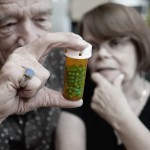
People with severe mental illnesses like schizophrenia or bipolar disorder are over three times more likely to lose their teeth because of poor oral health than the general population. The research, published in the September issue of the British Journal of Psychiatry, shows that psychiatric patients have not shared in recent improvements in dental health. [read the full story…]








